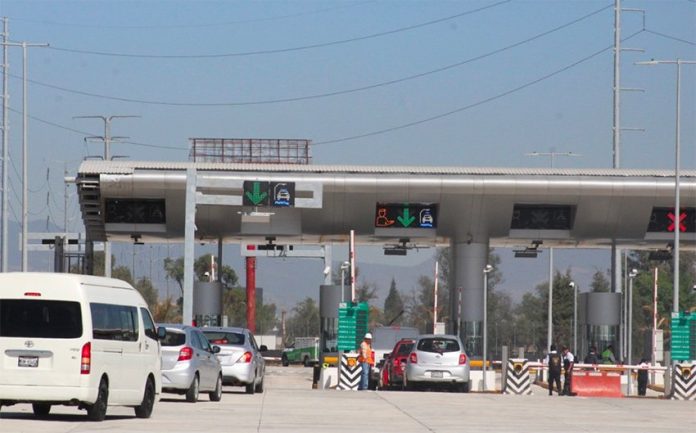Automobile tolls went up between 1% and 6% today on most of Mexico’s principal highways.
Capufe, the federal highways and bridges operator, said one of the highest increases is on the heavily used highway between Mexico City and Puebla, where tolls went up by 5.7% to 165 pesos.
On the Mexico City-Querétaro highway, also a busy route, the toll went up by 1.2% to 166 pesos.
Although the Mazatlán-Durango highway has proved costly to maintain, motorists will pay only 1.5% more with the new toll of 601 pesos.
Travelers between Monterrey, Nuevo León, and Nuevo Laredo, Tamaulipas, started paying 253 pesos today, up 4.1%.
The fee on the highway connecting the Veracruz cities of Córdoba and Veracruz rose by 3.5%, to 206 pesos, while in Tamaulipas motorists driving between Reynosa and Matamoros will pay 77 pesos, 2.6% more.
The only route where tolls remain unchanged is Mexico City-Acapulco, one of the most heavily used highways. The price is still 530 pesos.
Capufe is a branch of the federal Secretariat of Communications and Transportation and operates a network of 42 highways and 32 bridges, 12 of which are international.
The last time highway tolls went up was in January.
Source: Milenio (sp)
